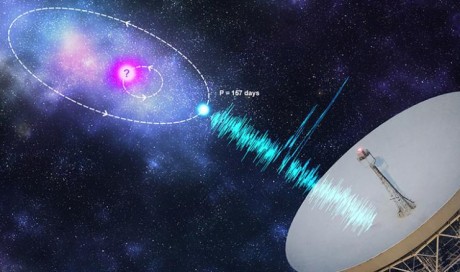- Dogs that can sniff out cancer in urine stole the BBC health headlines on Monday morning. Dr Emma Smith debated the potential of these canines live on BBC Two, with MP Ian Duncan Smith. Skip to 10:30 to see her in action.
- Astronomy met oncology in another BBC report earlier this week. One of our researchers, Dr James Brenton, featured and discussed ways in which these fields can swap tips on handling Big Data.
- The Telegraph reported that leukemia began in bats 45 million years ago. The researchers said the study revealed the ‘missing link’ in fossil records of a certain type of virus, that is linked to blood cancer and this info could lead to new developments in treatment.
- Drugs to treat breast cancer with the ‘Angelina Jolie gene’ (a faulty BRCA gene) might help a further 1 in 5 women with breast cancer who don’t have the genetic fault. This story was reported widely. Read what our expert has to say here.
- Following on from concerns aired last week that Brexit might affect children’s cancer trials, there was an interesting letter in the Guardian about the risks of cutting ties with the European Medicines Agency (EMA) once we’ve officially left the EU. Read it here.
- We reported on a promising new treatment for a rare type of breast cancer. A drug fused to an antibody shrank hard-to-treat, triple negative breast cancers in 70 out of 100 patients. Get the details here.
- According to New Scientist, “Sweden is lighting the way to a cigarette-free world” with the smoking rate in men down to 8 in 100. But it’s worth noting that 18% of Swedish men use another type of tobacco product, snus – which isn’t without its harms.
- On Wednesday NICE announced the introduction of a budget impact test for all new drugs entering the NHS in England. The test will see drugs which cost the NHS £20M or more being held back. In some cases patients could be waiting up to 3 years to receive new treatments. As expected, this kicked up a lot of national coverage, we called the plans unacceptable and asked the government to reconsider.
- To read why our expert called results of a trial released this week ‘practice changing’, check out our news report. The study reported that using chemotherapy alongside radiotherapy doubled survival in almost half of elderly patients with glioblastoma, the most common type of brain tumour.
- It’s British Science Week this week and the theme is ‘change’. To celebrate, all week we’ve been speaking to experts to see how the world of cancer research has changed in the last twenty years. They also gave us their projections for the next twenty. Read what they had to say here.
- And finally…
- The Express got very EGG-cited about a new study suggesting that the risk of getting ovarian and prostate cancer is significantly increased by eating more than two eggs a week. But don’t give up the egg and soldiers just yet! There’s no good evidence that eating eggs is linked to either prostate or ovarian cancer, and this article – prompted by a statement from a vegan charity – didn’t convince us otherwise…
Share This Post















